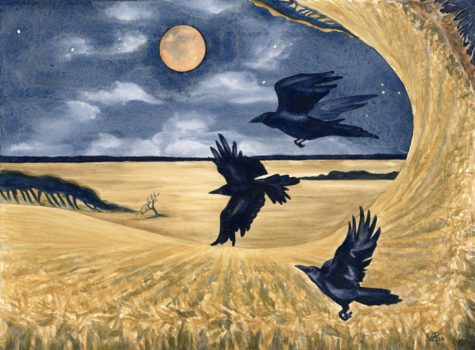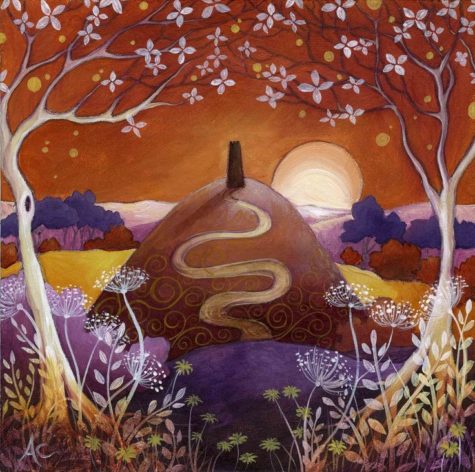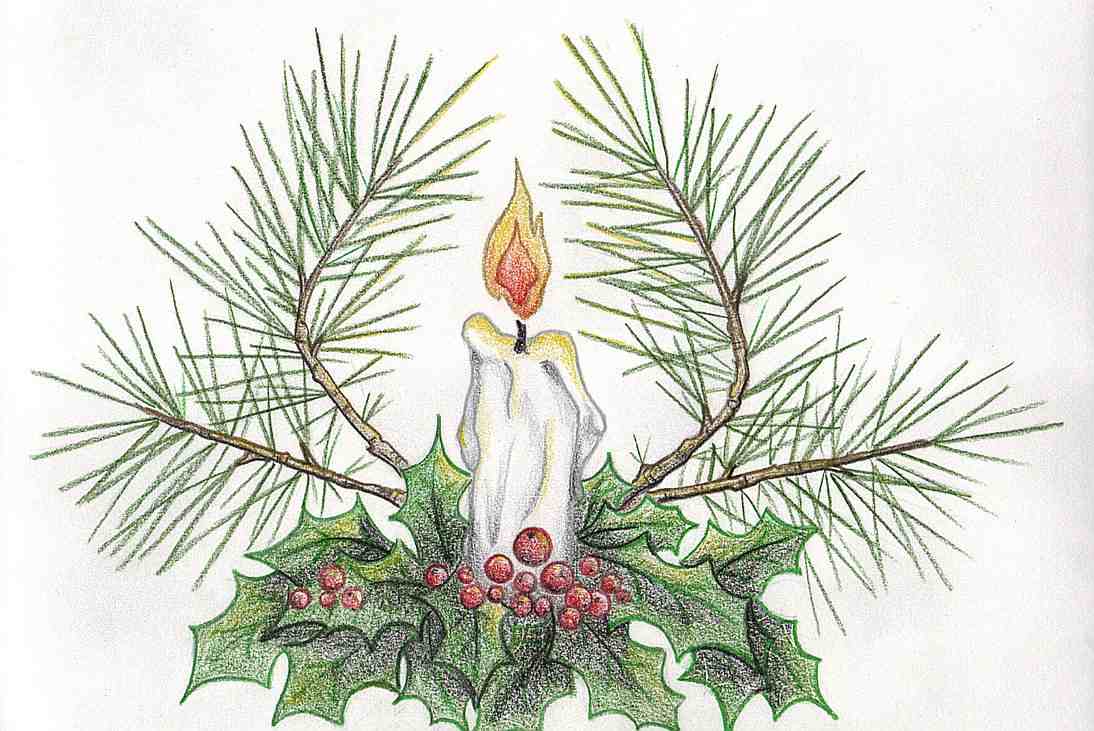August Lore
In August, we celebrate the beginning of the Corn Moon. This moon phase is also known as the Barley Moon, and carries on the associations of grain and rebirth that we saw back at Lammastide. August was originally known as Sextilis by the ancient Romans, but was later renamed for Augustus (Octavian) Caesar. Some Native American tribes knew that the sturgeon of the Great Lakes and Lake Champlain were most readily caught during this full Moon, for them it was the Full Sturgeon Moon. Others called it the Green Corn Moon or the Grain Moon.
Correspondences:
- Element: Fire
- Colors: Yellow, red, orange, gold
- Gemstones: Tigers eye, carnelian, garnet, red agate, fire agate, jasper,
- Trees: Cedarm alder, hazel
- Gods: Vulcan, Mars, Nemesis, Hecate, Hathor, Thoth, Ganesha, Diana
- Nature Spirits: dryads
- Herbs: Rosemary, basil, rue, chamomile, St Johns wort, bay, angelica, fennel, rue, orange
- Flowers: Sunflower, marigold
- Scents: Frankincense, heliotrope
- Animals: lion, phoenix, sphinx and the dragon
- Birds: crane, falcon, eagle
As the summer begins winding down, we’ve made it through the first harvest of Lammas/Lughnasadh, and now it’s time to think about bringing in the next phase of crops. Grain is ready to be threshed and baked into bread. If you have a garden, pick your herbs and veggies, so you can preserve or dry them before the cooler days set in. Gather your herbs and hang them in a dark place to dry, so you can use them all winter, either for magical needs or culinary ones.
Energies should be put into harvesting, gathering vitality and health, also friendships. Harness some of the Corn Moon’s fiery energy for your ritual and spell work. This is a good time to focus on your spiritual and physical health. It’s the time to harvest what you can now to put aside for later use. What sacrifices can you make today that will benefit you further down the road?
Collected from various sources including: PaganWiccan
What follows is a list (in alphabetical order) of the names given to the August moon. Also listed is the tradition and/or origin of that moon name:
Acorns Ripen Moon ~Maidu
Autumn Moon ~Taos
Barley Moon ~other
Berry Moon ~Anishnaabe
Big Harvest Moon ~Creek
Big Ripening Moon ~Creek
Blackberry Moon ~Wishram
Black Cherries Moon ~Sioux, Assiniboine
Corn Moon ~Medieval English
Corn Silk Moon ~Ponca
Cutter Moon ~Abernaki
Dispute Moon ~Celtic, Janic (full)
Dog Days Moon ~Yuchi, Colonial American, Algonquin
Drying Moon ~Cherokee
Edible Corn Moon ~Agonquin
Feather Shedding Moon ~Passamaquoddy
First Acorns ~Pomo
Freshness Moon ~Mohawk
Fruit Moon ~Cherokee
Geese Shedding Feathers Moon ~Arapaho
Grain Moon ~Cherokee
Green Corn Moon ~Algonquin
Harvest Moon ~Chinese, Janic (dark)
Heat Moon ~Creek
Joyful Moon ~Hopi
Last Fruit Moon ~Cherokee
Lightning Moon ~Neo Pagan
Middle Moon ~Potawatomi
Mulberries Moon ~Natchez
Red Moon ~Algonquin
Ripen Moon ~Dakota
Sturgeon Moon ~Algonquin
Yellow Flower Moon ~Osage
Yellow Leaves Moon ~Kiowa
Young Ducks Fly Moon ~Cree
Wheat Cut Moon ~San Juan
Women’s Moon ~Choctaw
Wood Cutter’s Moon ~Algonquin
Wort Moon ~Medieval English
Wyrt Moon ~other
From Llewellyn’s 1994 Magical Almanac, we have the following description of this summer holiday:
“A beautiful city was once believed to have risen gracefully off the shores of a small French village in Brittany, France, only to have been washed away in a high tide. Every year, on the first Sunday in August, the priests go to this fabled spot and bless the waters while observers lean over the sides of boats hoping to glimpse remnants of the city. This might be a good day to consider any spells or rituals pertaining to water and hidden truths.”
August, originally called Sextilis by the Romans, was later named Augustus in honor of Augustus Caesar. Gathered harvests were celebrated in many lands during this month.
August 1st was a Celtic feast called Lunasa or Lughnassadh, meaning the celebration of harvest and new grain for bread. In Old English this became Lammas, or “Loaf Mass.” The Romans also had a harvest festival during this month, that of the Consualia when sacrifices to Consus were made. Consus was the god of the underground storehouse where the grain was kept.
They also celebrated the Opseconsiva, a harvest festival for the goddess Ops. Wine and freshly baked bread were placed on her altars. Near the end of the month they had a thanksgiving feast called the Charisteria.
At three times during August, the Romans honored the god Vulcan: on August 17 at the Portunalia; on August 27 at the Volturnalia; and again on August 23 at the Volcanalia. this last festival was held outside the city boundaries and was to ward off accidental fires, a real threat in such closely-packed and fire-prone towns. Vulcan was not the only deity honored during these festivals. The goddesses Juturna (deity of fountains) and Stata Mater (who put out fires) were invoked as a counterbalance to Vulcan’s fires – volcanoes or otherwise.
The very early Greeks had a holy day for Hecate the Dark Mother on August 13, and ten days later one for Nemesis, the goddess who balanced the scales of justice with rightful revenge and punishment. In Rome, women who had prayers answered by Diana and Hecate marched by torchlight to the temples of these goddesses. There they held a special ceremony for women only and gave thanks.
The Egyptian Blessing of the Boats is quite similar in nature to the Roman festival of the Ludi Piscatari in June during the Mead Moon. Each boat was considered to have its own personality and a need for protection and blessing. The same can apply today to cars, boats, bikes, motorcycles, and in fact to any form of transportation upon which one relies.
In India today, the Hindu people still honor the elephant-headed god Ganesha, the deity who removes obstacles and brings good luck. Flowers and dishes of rice were set before his statues. However, it is considered unlucky to look at the Moon during this festival.
Yapaquix (Sowing Month), also known as Chacra Ayapui or Capac Siquis, was celebrated by the Incas. The people of Tibet had only one major holiday this month, the Sikhim festival of the birth of Padmasambhava.
From: Moon Magick







